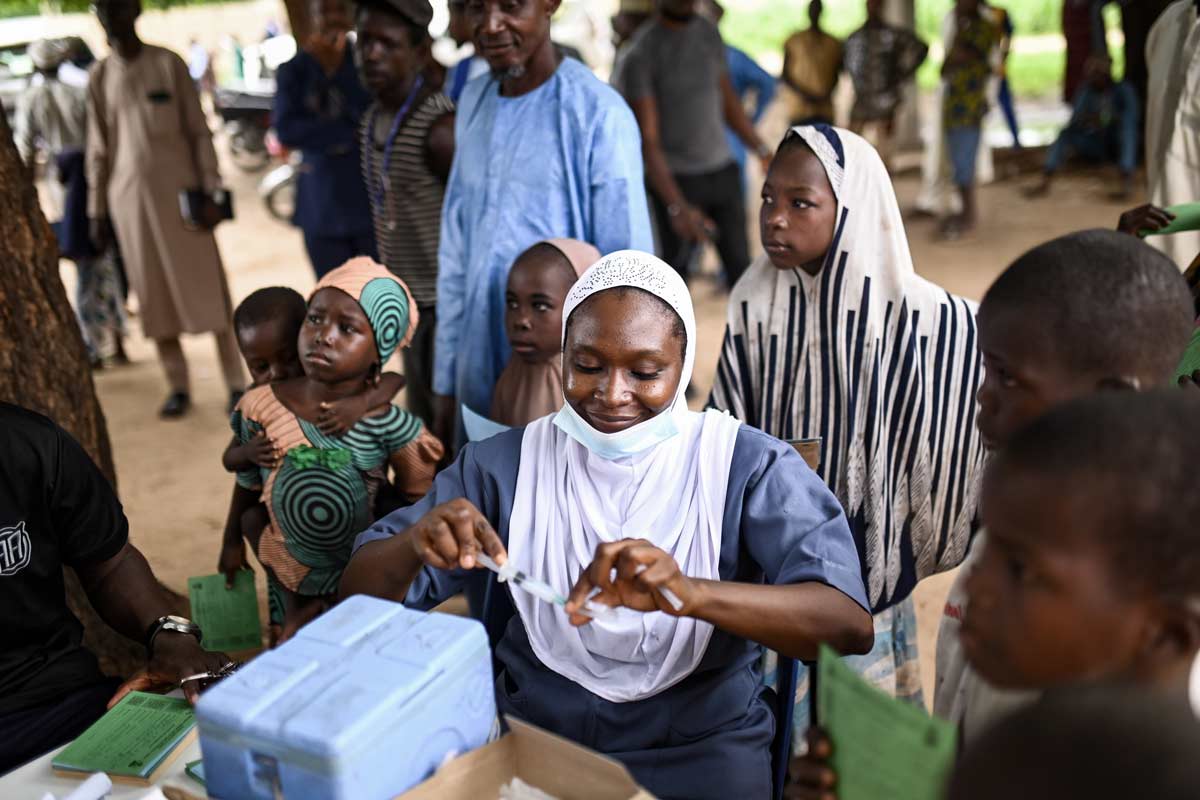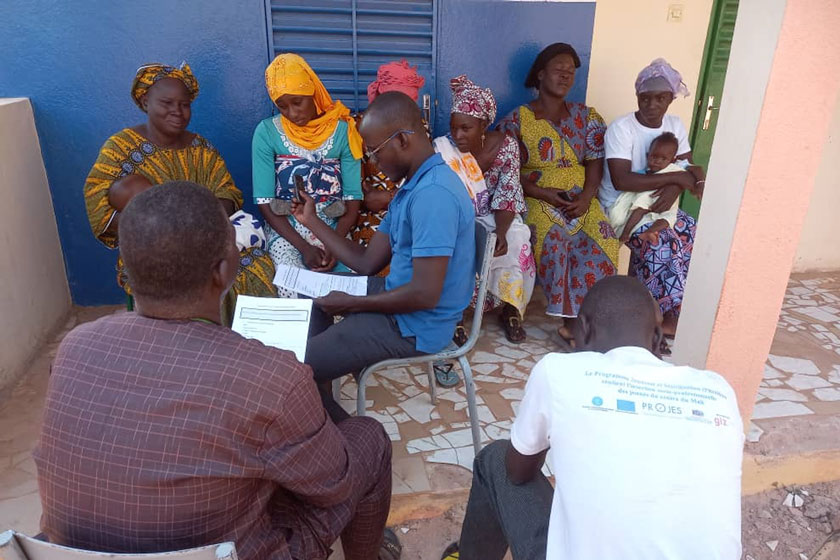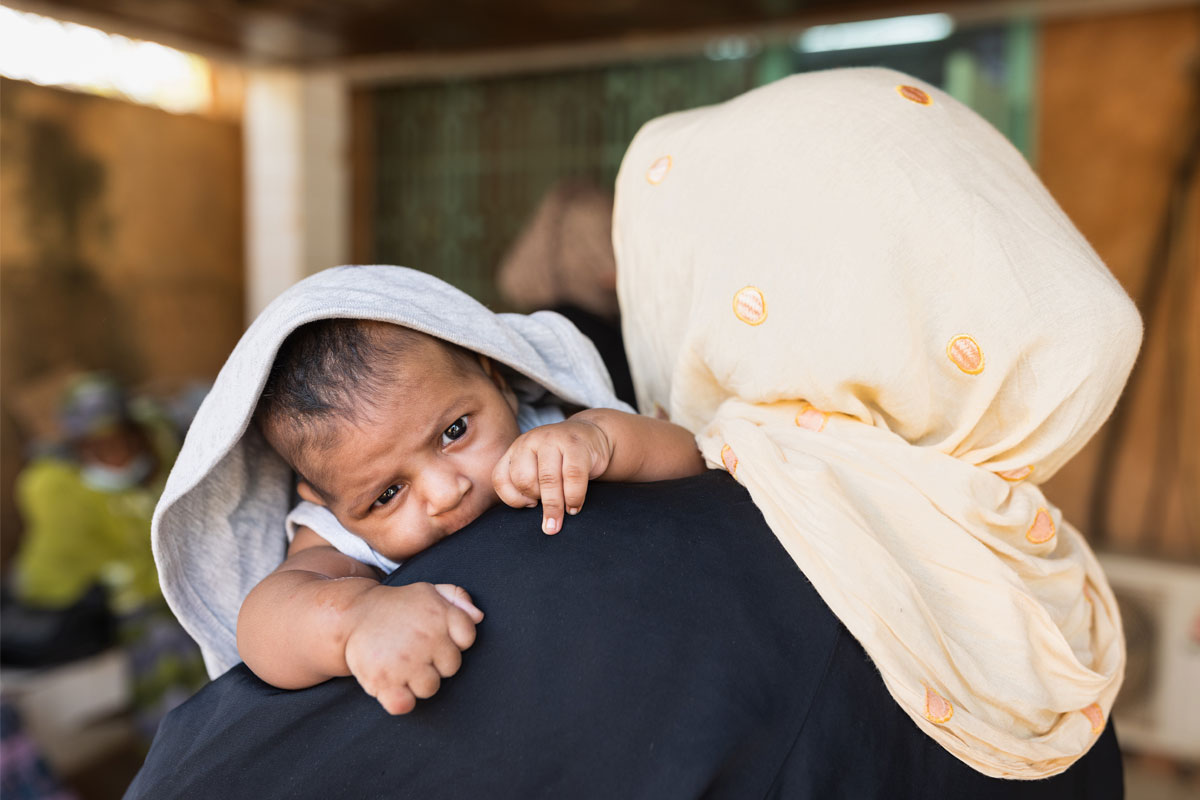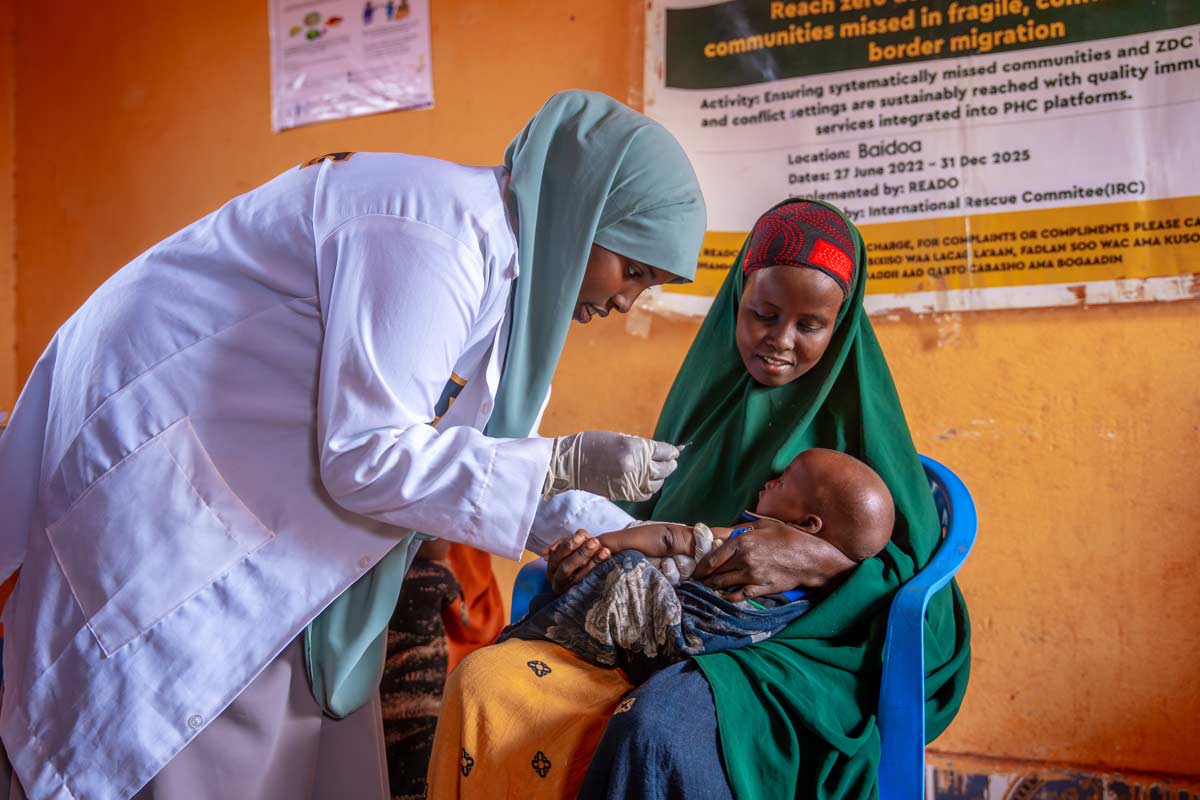From data to decisions: why political economy analysis matters for reaching zero-dose children
How do political governance and power dynamics affect the number of children going without vaccines? A new project by the Zero-Dose Learning Hub has some suggestions.
- 12 September 2025
- 6 min read
- by JSI

Despite progress in global immunisation coverage, zero-dose and under-immunised children continue to live at the margins of health systems. While technical strategies and data systems are essential, they often don’t explain why well-designed interventions fall short, or who is really making the decisions that shape programme outcomes.
To help answer these questions, the Gavi-funded Zero-Dose Learning Hub (ZDLH) conducted political economy analyses (PEAs) in Bangladesh and Nigeria, two countries with complex immunisation landscapes. These assessments offer public health professionals a fresh lens: one that goes beyond data quality or coverage rates to examine how governance, power dynamics and institutional behaviour influence efforts to reach missed communities.
What is political economy analysis, and why does it matter for immunisation?
Political economy analysis helps unpack how decisions get made within a country’s governance and delivery systems for immunisation. Who holds influence? Whose voice matters and shapes decision-making? What incentives, or disincentives, shape action or inaction?
A strong technical strategy or high-quality dataset may not lead to impact if key actors aren’t aligned, if frontline teams lack autonomy, or if evidence isn’t driving decisions. ZDLH applied a problem-driven PEA framework in Bangladesh and Nigeria to explore how evidence and data systems are used to drive immunisation strategies for zero-dose, under-immunised, and missed communities. The focus wasn’t on technical gaps, but rather the deeper institutional and political factors that shape programme performance.
Lessons from Bangladesh – a strong system with fragmented accountability
Bangladesh’s immunisation programme is a global model, with a well-established rural delivery system and high-level political commitment that ensured routine immunisation continued during the COVID-19 pandemic. The Expanded Programme on Immunization (EPI) leads national efforts, using microplans and digital tools like DHIS2 to guide outreach. Community engagement through NGOs and local health workers is another strength, particularly in hard-to-reach areas.
However, significant challenges remain, particularly in urban areas. A dual governance structure where two ministries share responsibilities in urban settings leads to fragmented service delivery and inconsistent oversight. This is compounded by bureaucratic delays, staff shortages and a reliance on outdated census data that contributes to inaccurate population estimates and vaccine stock-outs.
Lessons from Nigeria – fragmented systems, uneven power
Nigeria has made progress improving vaccination coverage over the last two decades. However, Nigeria’s immunisation landscape is a complex picture of fragmentation and uneven power. While data exists across various platforms like DHIS2, these sources remain siloed, poorly integrated and often outdated, limiting their effective use for planning. The challenges are political as much as technical. Federal, state and local governments operate independently, without clear lines of reporting or accountability. This lack of coordination makes it difficult to implement consistent strategies, as federal initiatives can be met with ‘silent pushback’ from states with different priorities.
The PEA report notes that frontline health workers, crucial for collecting community-level data, are often the least compensated and supported, which can lead to a ‘vacuum of commitment’ when compared to programmes like polio eradication that offered extensive incentives. The analysis emphasizses that improving data systems without addressing these underlying power dynamics risks reinforcing existing constraints.
What Bangladesh and Nigeria teach us about reaching every child
Across both countries, the PEA surfaced key cross-cutting lessons:
- Data alone is not enough. Its use depends on clear accountability, institutional alignment and political commitment. In Nigeria, decision-makers are reluctant to use data because they perceive its quality to be poor and find it difficult to rely on. In Bangladesh, weak integration of local data into national planning processes means that critical decisions are often based on aggregated or outdated data, leaving the specific challenges of zero-dose children unaddressed.
- Frontline and sub-national actors are pivotal, and often lack the authority or support to act on evidence. In Bangladesh, gaps in service delivery are often filled by NGOs and community health workers who operate independently due to a lack of frameworks regulating their funding and roles. In Nigeria, while frontline health workers are crucial for community-level data collection, the report notes that their capacity-building and support needs are often ignored during planning.
- Fragmentation across systems, stakeholders, and mandates undermines coordination and continuity. This is particularly evident in data systems, which are often siloed and not interoperable. In Nigeria, for example, vaccination data generated through state-led campaigns is often not integrated into routine data systems and is warehoused separately by the campaign implementers.
- Technical solutions must be politically smart. Technical merit alone isn’t enough because political factors play a significant role in determining how technologies are adopted and utilised. Digital tools, new policies, or reforms are only effective when they account for local decision-making dynamics, capacity and incentive structures.
Have you read?
Looking ahead: embedding political economy thinking in immunisation efforts
As countries and partners invest in reaching the last mile for immunisation, political economy insights offer practical value. They help programmes anticipate resistance, avoid blind spots and design strategies that work within real-world systems. These insights shift the question from “what works?” to “what will work here, which stakeholders are involved and why?” Findings from Bangladesh and Nigeria point to several entry points where PEA findings can inform more responsive and sustainable approaches:
- Use PEA findings to inform national strategies and grant planning, especially by identifying coordination gaps, decision-making dynamics, and misalignment with sub-national capacity needs. These insights can be applied during processes like National Immunisation Strategy (NIS) development and Full Portfolio Planning (FPP), and can also inform how Alliance partners engage in grant design, technical assistance, and learning activities.
- Strengthen mechanisms for collaboration across sectors and levels of government, particularly in areas where governance and decision-making are complex and where improved alignment of priorities and resources between national and decentralised levels is key to effective immunisation services.
- Support frontline capacity for data use, with targeted investments in training, simple tools and real-time systems tailored to local needs while also reducing data fragmentation and improving the integration of local data into routine systems to strengthen decision-making at all levels.
- Apply PEA during programme design or scale-up to uncover political risks, assess incentives and identify opportunities to align stakeholders and resources.
For public health professionals, using political economy analysis doesn’t require becoming a political scientist. It means recognising that programme success often hinges on relationships, incentives and institutional context. The path to reaching every child with life-saving vaccines requires more than strong data. It requires understanding how decisions are made, and who has the power to make them. The ZDLH Bangladesh and Nigeria political economy analyses offer a powerful reminder: to close the zero-dose gap, we need to engage not just with what the data says, but with how systems actually function.
To explore the full findings from both studies, visit the ZDLH website.
****
Led by JSI, with partners the International Institute of Health Management Research (IIHMR) and The Geneva Learning Foundation (TGLF), Gavi’s ZDLH is a global learning initiative to generate evidence and engage stakeholders to identify and reach zero-dose and under-immunised children. As the global learning partner, JSI supports Country Learning Hubs in Bangladesh, Mali, Nigeria, and Uganda to advance evidence-based strategies aligned with Gavi’s Identify-Reach-Monitor and Measure-Advocate (IRMMA) framework. Key ZDLH achievements include demand-driven technical assistance and the development of tools and resources, all aimed at identifying and reaching zero-dose children and integrating evidence into policy and practice.









